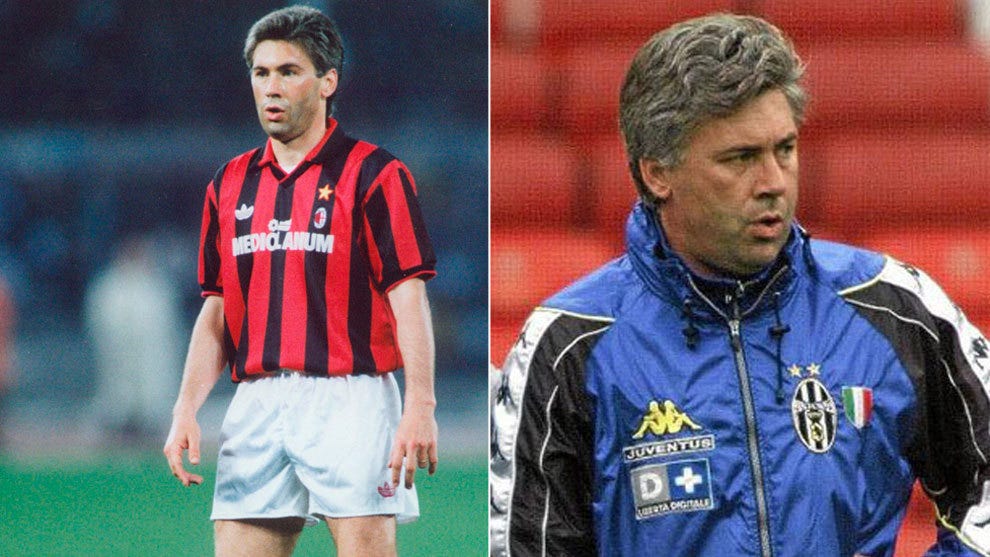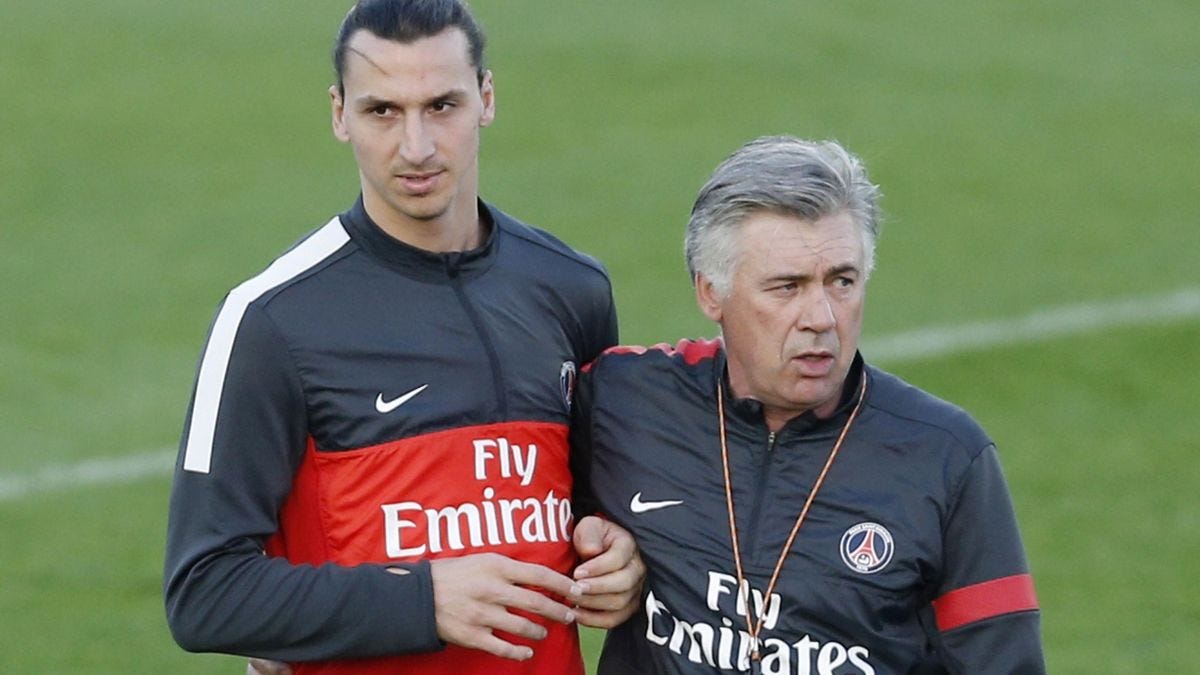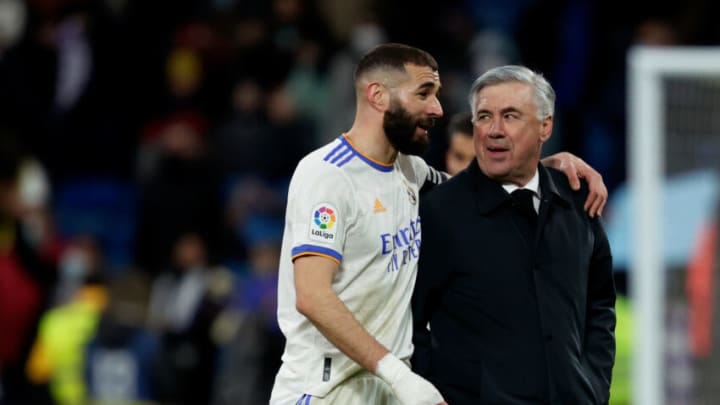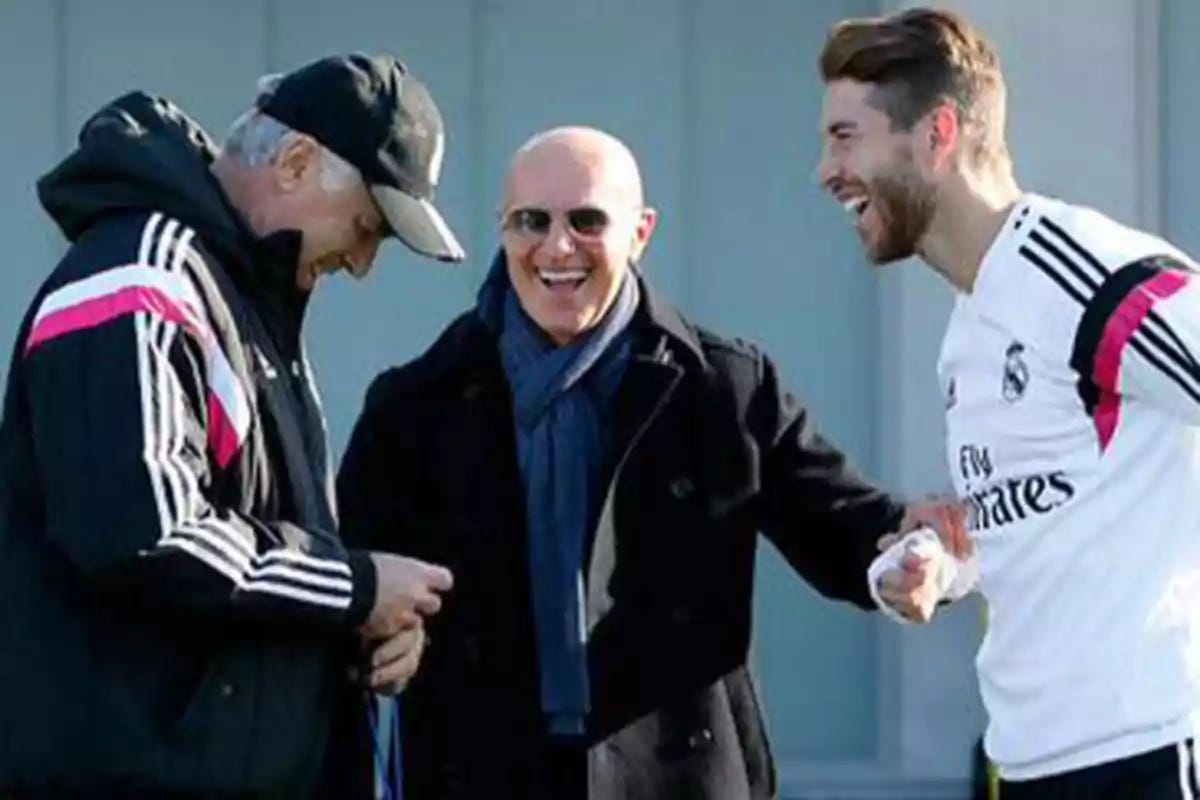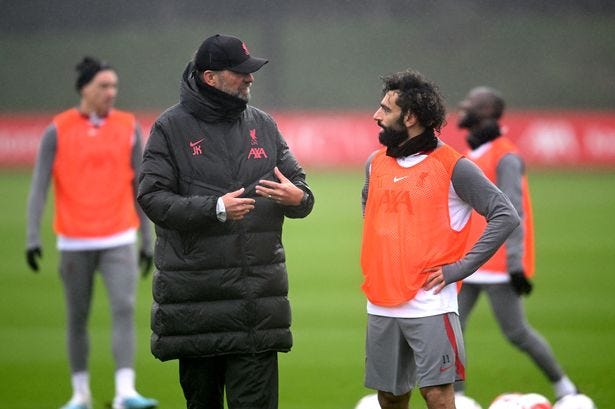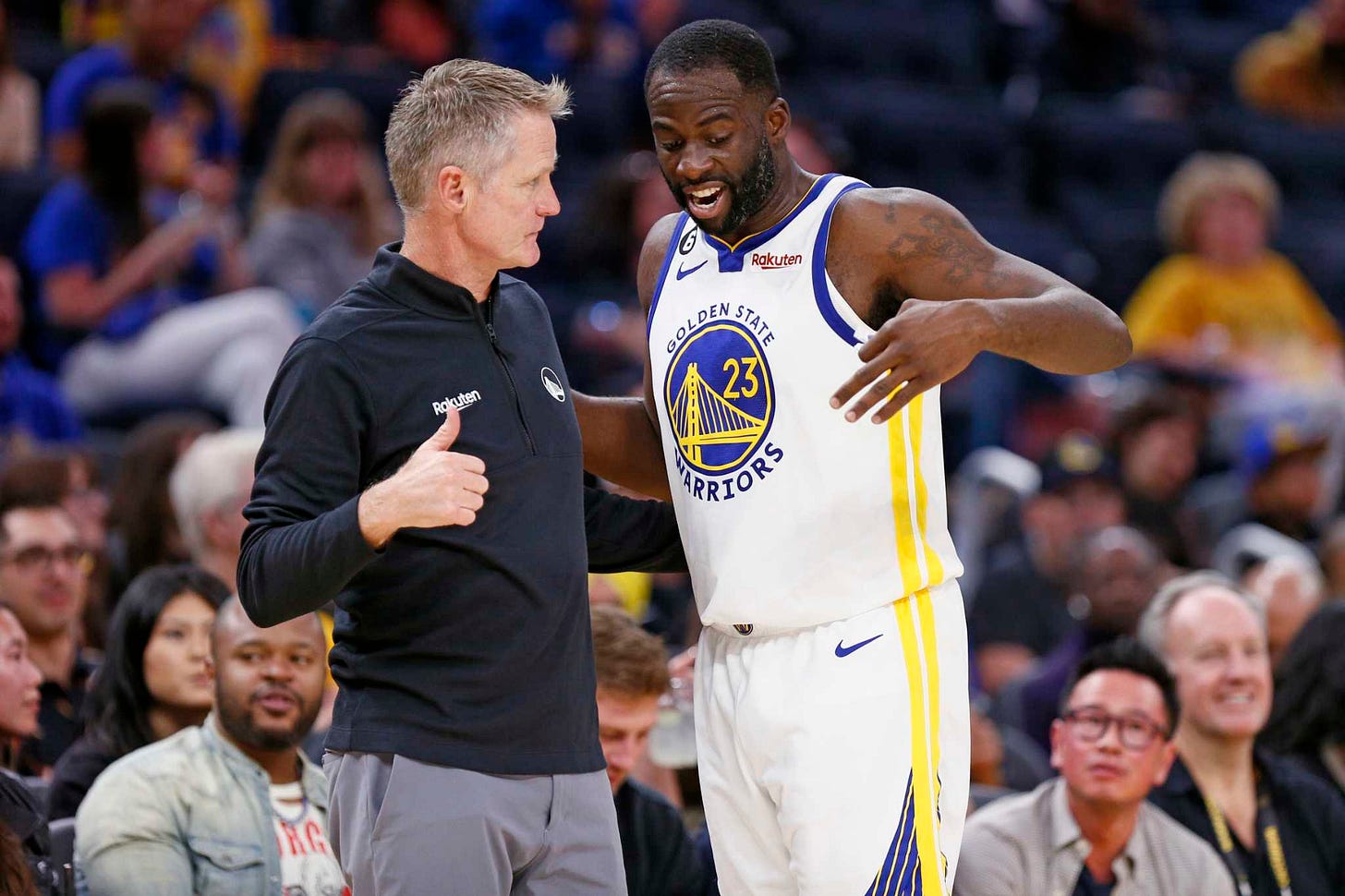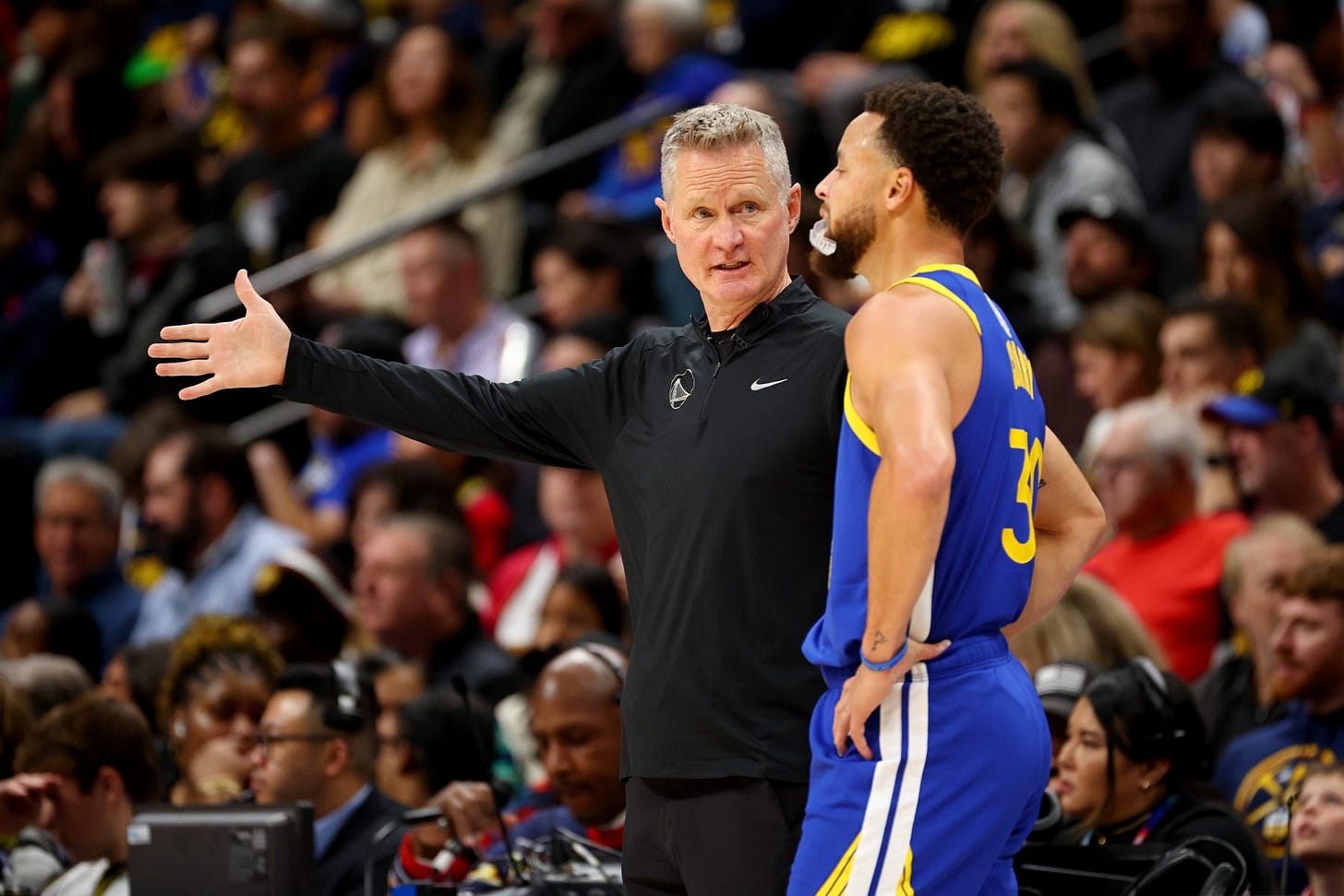📚Upside Case Studies - The Art of Coaching: Carlo Ancelotti, Jürgen Klopp, Steve Kerr
Case study #1: Carlo Ancelotti
Carlo Ancelotti, one of the most successful and respected football managers in modern history, has built a remarkable career managing clubs like AC Milan, Chelsea, Paris Saint-Germain, Bayern Munich, and Real Madrid. Known for his calm demeanor and deep understanding of the game's tactical and human dimensions, Ancelotti has accumulated domestic league titles and multiple UEFA Champions League trophies. His secret weapon? His unparalleled ability to communicate, connect, and cultivate mutual trust with players.
Background as a Player: Before becoming a manager, Ancelotti was an accomplished midfielder. He played under legendary coach Arrigo Sacchi at AC Milan, where he won two European Cups, two Serie A titles, and developed a deep understanding of tactical innovation and discipline. As a player, Ancelotti was known for his intelligence, discipline, and tactical versatility, often acting as a conduit between defense and attack. These traits translated directly into his coaching style, which values structure, balance, and adaptability.
Communication Style and Methodology: Ancelotti’s communication style is defined by empathy, humility, and emotional intelligence. Rather than asserting authority through control, he builds trust by actively listening and engaging players in meaningful, often informal, conversations. He avoids grandstanding and public criticism, preferring private, one-on-one dialogue to address issues or offer support. His approach creates a relaxed environment that empowers players, encourages creativity, and fosters mutual respect.
A critical element of Ancelotti’s methodology is adaptability. He tailors his leadership and communication approach to each individual, recognizing that different players require different types of motivation and guidance. Whether managing global superstars or emerging talents, he focuses on creating psychological safety, allowing players to thrive under pressure and contribute to the team's cohesion.
Impact on Their Players and Teams: Ancelotti’s impact on players and teams is reflected in the consistent loyalty and admiration he receives from his squads. At Real Madrid, he managed a dressing room full of elite talent—including Cristiano Ronaldo, Karim Benzema, and Luka Modrić—balancing egos while nurturing a collective mindset. His leadership was instrumental in Real Madrid’s multiple Champions League successes.
At AC Milan, his relationship with Paolo Maldini, Andrea Pirlo, and Clarence Seedorf exemplified his ability to build trust and shape a resilient core. Many of his former players credit Ancelotti not only for their tactical growth but also for helping them mature as professionals and individuals. His presence has often been cited as a stabilizing influence during turbulent periods, providing calm amidst chaos and helping teams perform with clarity and purpose.
Famous Quote: "I treat my players like adults. I trust them, and in return, they trust me. That’s the foundation of everything."
Lessons Learned: Ancelotti’s career teaches us that leadership is a blend of technical mastery and human connection. He shows that long-term success comes from valuing players as people first—understanding their motivations, pressures, and personalities. By focusing on relationships, transparency, and adaptability, Ancelotti has developed a sustainable leadership model that delivers both results and respect.
Where They Learned Their Coaching Philosophy: Ancelotti credits much of his coaching foundation to working under Arrigo Sacchi at AC Milan. Sacchi’s focus on tactical systems, collective responsibility, and psychological preparation deeply influenced Ancelotti’s approach. He later blended that with his own personality—calm, open, and relational—to craft a more player-centric, emotionally intelligent leadership style. Additionally, his experience playing for and learning from Italian greats instilled in him the importance of balance, discipline, and tactical nuance.
Conclusion: Carlo Ancelotti’s legacy highlights the transformative impact of empathetic leadership and player-centric communication. His success is built on the understanding that great coaching is not just about systems and strategy, but about trust, connection, and emotional intelligence. His calm, measured, and personalized approach continues to set a gold standard in elite football management.
Case study #2: Jürgen Klopp
Jürgen Klopp, the charismatic manager of Liverpool FC, is renowned for his high-energy leadership, emotional intelligence, and deep connection with his players. His impact at Borussia Dortmund and Liverpool has been transformative, turning underdog squads into European champions with a leadership style rooted in passion, transparency, and trust. He is not only admired for his footballing mind but for the emotional culture he’s created wherever he goes.
Background as a Player: Klopp played his entire career for Mainz 05, mainly as a defender, though he occasionally filled in as a striker. While never an elite-level footballer, Klopp’s work ethic, tactical intelligence, and leadership qualities were clear even in his playing days. He was often seen coaching teammates on the pitch—an early sign of his future vocation. His experiences in the lower tiers of German football gave him deep empathy for the working-class roots of the sport and a practical understanding of how to get the most out of players with limited resources.
Communication Style and Methodology: Klopp’s hallmark is his emotional openness and authenticity. His communication is grounded in clarity, humor, empathy, and raw energy. He creates a high-trust, high-engagement environment by being emotionally available to his players. Whether in team talks, one-on-ones, or media appearances, Klopp communicates with purpose and heart, always protecting his players in public and holding them accountable in private.
His tactical system, “gegenpressing,” relies on every player committing to collective intensity and rapid transitions. He uses motivational techniques that tap into individual drives while aligning them with team objectives. Klopp’s ability to connect emotionally makes it easier to demand maximum physical and psychological effort from his squads.
Impact on Their Players and Teams: At Borussia Dortmund, Klopp took a young, relatively unknown team and turned them into Bundesliga champions and Champions League finalists. He brought out the best in players like Robert Lewandowski, Marco Reus, and Ilkay Gündoğan, creating a brotherhood rooted in shared struggle and joy.
At Liverpool, Klopp rejuvenated a sleeping giant, returning the club to the summit of English and European football. Players like Mohamed Salah, Sadio Mané, and Trent Alexander-Arnold reached world-class levels under his guidance. His culture of belief, unity, and relentless work has made Liverpool not just a team but a global symbol of passion-driven excellence.
Famous Quote: "We have to change from doubters to believers—now."
Lessons Learned: Klopp’s journey teaches us that great leadership is fueled by conviction, emotional connection, and vulnerability. He proves that culture is a competitive advantage and that empowered, united teams can outperform expectations. His methods highlight that empathy and performance are not mutually exclusive—they are symbiotic.
Where They Learned Their Coaching Philosophy: Klopp credits Wolfgang Frank, his coach at Mainz, for introducing him to zonal defending and pressing as team concepts. Klopp has also drawn on ideas from American sports culture and the teachings of Phil Jackson, especially around leadership psychology, group dynamics, and mindfulness. His philosophy is a blend of academic curiosity, practical experience, and humanism.
Conclusion: Jürgen Klopp embodies the next generation of leadership in elite sport: emotionally intelligent, values-driven, and relentlessly passionate. His success is built on more than tactics—it’s rooted in human connection, cultural clarity, and belief.
Case study #3: Steve Kerr
Steve Kerr, head coach of the Golden State Warriors, has become a symbol of the modern NBA coach: emotionally aware, philosophically grounded, and culturally impactful. Under his leadership, the Warriors have won multiple NBA titles and redefined how championship teams are built—not just with talent, but with culture, connection, and communication.
Background as a Player: Kerr played 15 seasons in the NBA, winning five championships as a role player known for his shooting and poise under pressure. Playing under Phil Jackson on the Chicago Bulls and Gregg Popovich with the San Antonio Spurs exposed him to contrasting but complementary leadership styles. Jackson’s Zen-like detachment and Popovich’s disciplined empathy would leave a lasting imprint on Kerr’s coaching ethos.
Communication Style and Methodology: Kerr leads through collaboration, humility, and trust. He invites open dialogue, encourages feedback, and listens to players regardless of their status on the team. He often checks in with players on non-basketball matters, reinforcing that he values them as people first. He uses storytelling, metaphors, and reflective questions in his team talks, often leaning into psychology and emotional awareness to inspire performance.
He is also a proponent of vulnerability in leadership—openly discussing personal experiences, struggles, or emotions with his team. Kerr views coaching not as control, but as orchestration—setting the conditions for others to succeed. His style promotes autonomy, creativity, and shared accountability.
Impact on Their Players and Teams: Kerr’s approach has empowered stars like Stephen Curry and Klay Thompson to thrive as both athletes and leaders. His emphasis on joy and selflessness has become the Warriors’ trademark, translating into beautiful, unselfish basketball and a unique locker room culture.
He’s also helped the team navigate adversity—such as injuries or playoff failures—by fostering emotional resilience. His connection with Draymond Green, for instance, exemplifies how tough conversations and mutual respect can coexist and lead to growth.
Famous Quote: "We’re playing with joy. That’s the goal every night—to compete fiercely but to enjoy the game and each other."
Lessons Learned: Kerr’s leadership proves that empowerment is more powerful than command. By creating a psychologically safe space, he enables players to flourish individually and collectively. His style shows that mindfulness, trust, and humility are competitive assets.
Where They Learned Their Coaching Philosophy: Kerr’s philosophy is rooted in his experiences with Phil Jackson and Gregg Popovich. From Jackson, he learned about emotional awareness, cultural rituals, and player autonomy. From Popovich, he adopted values of accountability, social consciousness, and care for the person behind the athlete. Kerr also integrates elements from books, meditation, and broader life experiences into his day-to-day leadership.
Conclusion: Steve Kerr exemplifies the new gold standard in coaching—one that prioritizes human connection, cultural coherence, and player empowerment. His blend of strategic brilliance and emotional authenticity continues to shape how success is defined in modern professional sport.
You may also like:



